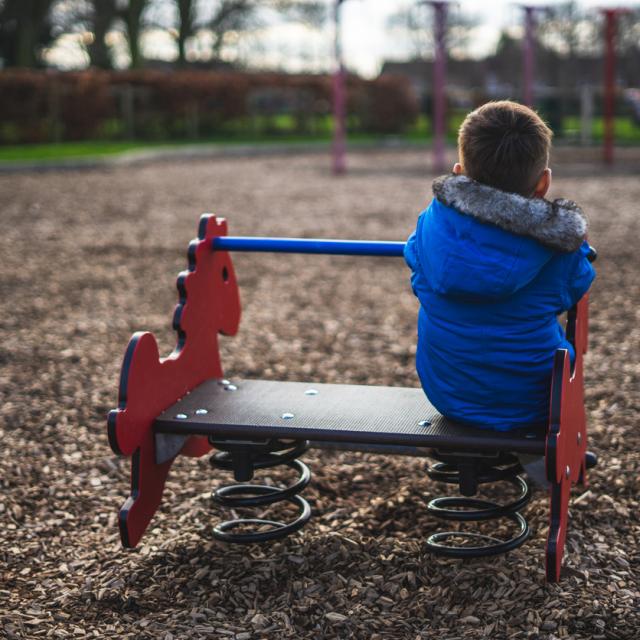Young people’s experiences of education during COVID


There is robust evidence that emotional difficulties are worsening for younger generations in the UK. These concerning trends are not expected to impact all children equally. Social inequalities during childhood are associated with accumulating risk factors for poorer mental health outcomes in later life, a phenomenon called the “social gradient of health.” However, while we know that risk factors in early life are associated with later outcomes, we know less about how the impact of particular inequalities and risk factors interact during childhood and adolescence, shaping social and psychological development.
Through my doctoral research I am investigating the relationships between social inequalities, the experience of significant life events, and the emergence of the social gradient of mental health in early life in Scotland. I am using the theory of “critical moments” or “turning points”: an idea from life course studies that big life events transform one’s everyday circumstances and the experience of these may help to explain part of why people take different paths. Examples of potentially critical events that can be studied with the Growing Up in Scotland study (GUS) include major changes to: family relationships (e.g., a parent leaving the home or re-partnering), family health, and parental employment. The central issue of my project is working out how to estimate the impacts of these events on patterns of children’s social and emotional behaviours as they grow up.
As a longitudinal study with detailed information on evolving family circumstances over the past two decades, GUS is a fantastic resource to study children’s experiences with more holistic understandings of their circumstances. This is essential for situating critical events within the broader context of children and families in Scotland. Who is more likely to experience potentially significant life events? How do household resources affect the influence of critical events on child development? Better understanding of what causes differences in social and emotional development can help to unravel the complex causes of life-long inequalities from the early years onwards. I hope that this information will aid policymakers in designing better support for children and families.
My PhD journey so far has been characterised by falling into methodological “rabbit holes” as I navigate the nuts and bolts of this project. I have come to appreciate that these quandaries are not just an inevitable waypoint in the research process, but a valuable output from secondary data analysis and its role as a resource for methodological research. Using GUS data has allowed me to dip into some of these questions, learn new techniques, and interrogate the impact of different analytical approaches.
One rabbit hole that I have been exploring is how the identity of the person responding to the questionnaire influences the measurement of social and emotional behaviours in surveys. GUS is a good resource for tackling this question because it pairs adolescents’ own reflections about themselves alongside answers about them from their parents and teachers, allowing me to probe the differences between these responses. This has been an important step for gaining a greater comprehension of the uncertainties and potential missing perspectives in some of my models where it is only possible to use parent-reported data.
These lines of inquiry also have implications for designing future studies and informing how we can best use existing datasets, like GUS, to better understand the lives of young people today. Therefore, I hope that an additional impact of my PhD is my own training in, and modest contribution to, our discussion and utilisation of quantitative social research methods.
Findings from my doctoral research are still preliminary, but I hope to finalise my work in the coming year. I also intend to contribute to open science and reproducibility by making the code for my analysis publicly available on GitHub after my thesis corrections. Finally, I would like to thank all GUS participants; my project would not be possible without the generous donation of their time and commitment to the study.
Madison (Maddi) Bunker is a PhD student in Social Policy at the University of Edinburgh. She is supervised by Dr Valeria Skafida and Dr Emma Davidson. Her doctoral research is a studentship funded by the UK Economic and Social Research Council (ESRC) through the Scottish Graduate School of Social Science (SGSSS). She is also a founding member of the Large Social Surveys (LSS) group, a postgraduate and early careers research network for social scientists using applied statistical methods.
Alegría, M., NeMoyer, A., Falgas, I., Wang, Y., Alvarez, K., 2018. Social Determinants of Mental Health: Where We Are and Where We Need to Go. Curr Psychiatry Rep 20, 95. https://doi.org/10.1007/s11920-018-0969-9
Allen, J., Balfour, R., Bell, R., Marmot, M., 2014. Social determinants of mental health. Int Rev Psychiatry 26, 392–407. https://doi.org/10.3109/09540261.2014.928270
Armitage, J.M., Kwong, A.S.F., Tseliou, F., Sellers, R., Blakey, R., Anthony, R., Rice, F., Thapar, A., Collishaw, S., 2023. Cross-cohort change in parent-reported emotional problem trajectories across childhood and adolescence in the UK. The Lancet Psychiatry. https://doi.org/10.1016/S2215-0366(23)00175-X
Marmot, M., Bell, R., 2016. Social inequalities in health: a proper concern of epidemiology. Ann Epidemiol 26, 238–240. https://doi.org/10.1016/j.annepidem.2016.02.003
Thomson, R., Holland, J., 2015. Critical Moments? The Importance of Timing in Young People’s Narratives of Transition, in: Wyn, J., Cahill, H. (Eds.), Handbook of Children and Youth Studies. Springer, Singapore, pp. 723–733. https://doi.org/10.1007/978-981-4451-15-4_35
Sign up to our newsletter to receive regular updates about the Growing Up in Scotland study, as well as findings, events and blogs.
Click here